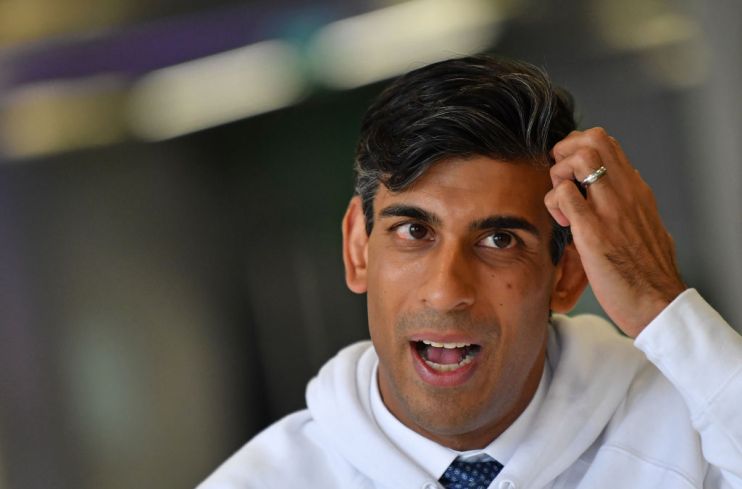UK public borrowing unexpectedly picks up to hit record £209bn this year

UK government borrowing rose unexpectedly in September, pushing the budget deficit to a new record high of just under £210bn and the total debt pile to its biggest level as a proportion of GDP since 1960.
The government borrowed £36.1bn last month, according to the Office for National Statistics’s (ONS) best estimate. That comfortably beat forecasts and was well above the revised August figure of £30.1bn.
Read more: Rishi Sunak: Circuit breaker would be ‘enormously damaging’ to economy
Chancellor Rishi Sunak has spent massively to support the economy throughout the coronavirus pandemic.
The budget deficit – the gap between income and spending that must be made up by borrowing – was £208.5bn in the first six months of the year, the ONS said.
It was £174.5bn higher than in the same period a year earlier and the highest figure for such a period since records began.
With tax receipts falling sharply as the economy slows, Sunak has turned to borrowing to fund the furlough scheme, business grants, universal credit, and other support measures.
In response to the figures, Sunak said: “Whilst it’s clear that the coronavirus pandemic has had a significant impact on our public finances, things would have been far worse had we not acted in the way we did to protect millions of livelihoods.”
“I’ve been clear that our enduring priority is to protect as many jobs and businesses as possible through this pandemic.” Sunak said this is “the fiscally responsible thing to do”.
The extra borrowing in September took the UK government’s total debt pile to £2.06 trillion or around 103.5 per cent of GDP. That was the highest debt to GDP ratio since 1960.
Sunak faces more borrowing and bigger deficit
Tax receipts have fallen sharply during the coronavirus crisis. They were £37.7bn in September, the ONS said. That was £6bn less than a year earlier.
Governments around the world have also seen their budget deficits balloon. However, there is less concern about high levels of debt than after the financial crisis.
The International Monetary Fund (IMF), which urged restraint after 2008, has led the calls for sustained spending.
“High levels of public debt are… not the most immediate risk,” it said last week. “The near-term priority is to avoid premature withdrawal of fiscal support.”
Nonetheless, Sunak has expressed worries about the high levels of borrowing.
He has also made his flagship job support scheme much less generous than the furlough programme. The government will pay up to 22 per cent of workers’ wages from November, whereas before it paid 80 per cent.
Yet if Sunak had hoped to take a cautious fiscal line during the winter, rising coronavirus cases threaten his plan.
The government has put Liverpool, Lancashire and now Manchester into the highest “Tier 3” restrictions. It will offer economic support and pay two-thirds of the wages of workers in businesses that are forced to close.